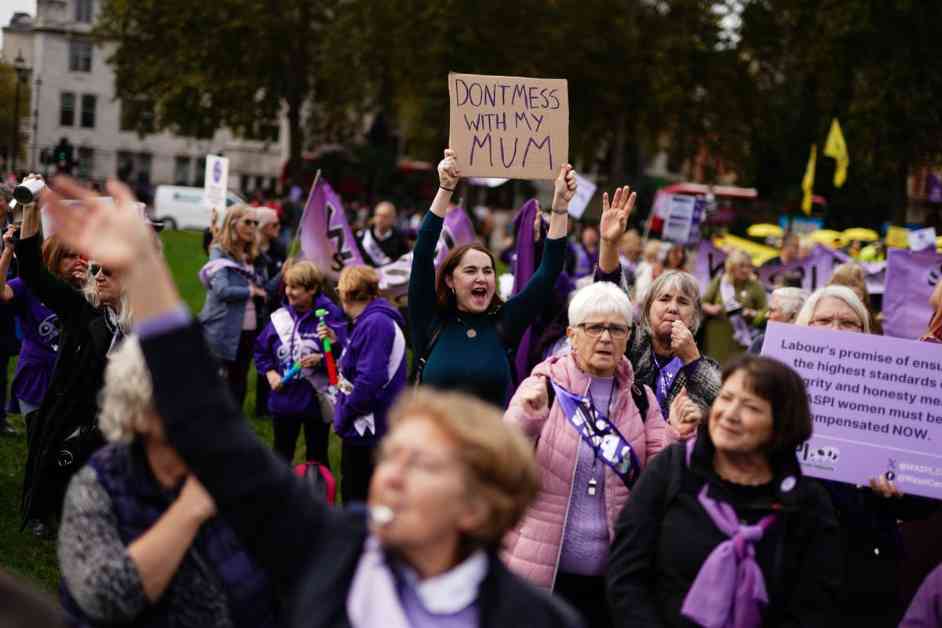Supporters of the Women Against State Pension Inequality (Waspi) campaign were left reeling after the government’s decision to deny compensation to millions of women affected by changes to the state pension age. The move, labeled as “bizarre and totally unjustified” by campaigners, sparked outrage and criticism from various quarters.
Government’s Controversial Decision
The decision, announced by work and pensions secretary Liz Kendall, struck a chord with the affected women and their supporters. Rejecting calls for individual compensations ranging from £1,000 to £2,950, Kendall emphasized that the government did not consider it a fair use of taxpayers’ money. The potential compensation bill of £10.5 billion for up to 3.8 million women was deemed too steep by the government.
Campaigners’ Reaction
Campaigners, including Angela Madden, chairwoman of Waspi, expressed disbelief and dismay at the government’s stance. Madden criticized the decision as a blatant disregard for the recommendations of an independent watchdog, questioning the purpose of an ombudsman if its decisions could be ignored so easily. The denial of compensation was seen as a profound injustice and a failure to acknowledge the struggles faced by the affected women.
Support and Solidarity
The decision was met with widespread condemnation from various organizations and individuals. Caroline Abrahams from Age UK highlighted the added sense of injustice faced by the affected women, especially considering the financial pressures they were already under. Unison’s Josie Irwin described it as a cruel blow to a generation of women, emphasizing the urgent need for a resolution to the situation.
Call for Action
Despite the government’s acceptance of maladministration and delay in communication, the refusal to provide compensation was seen as a missed opportunity to right a wrong. Calls for alternative mechanisms to address the issue were made by campaigners and MPs alike. The government’s apology was deemed insufficient, with demands for concrete actions and accountability echoing through parliamentary discussions.
The government’s decision not only sparked outrage but also united voices in solidarity with the affected women. As the Waspi campaign continues its fight for justice, the debate around fair compensation and accountability remains at the forefront of public discourse. The resilience and determination of these women serve as a powerful reminder of the ongoing battle for gender equality and social justice.












